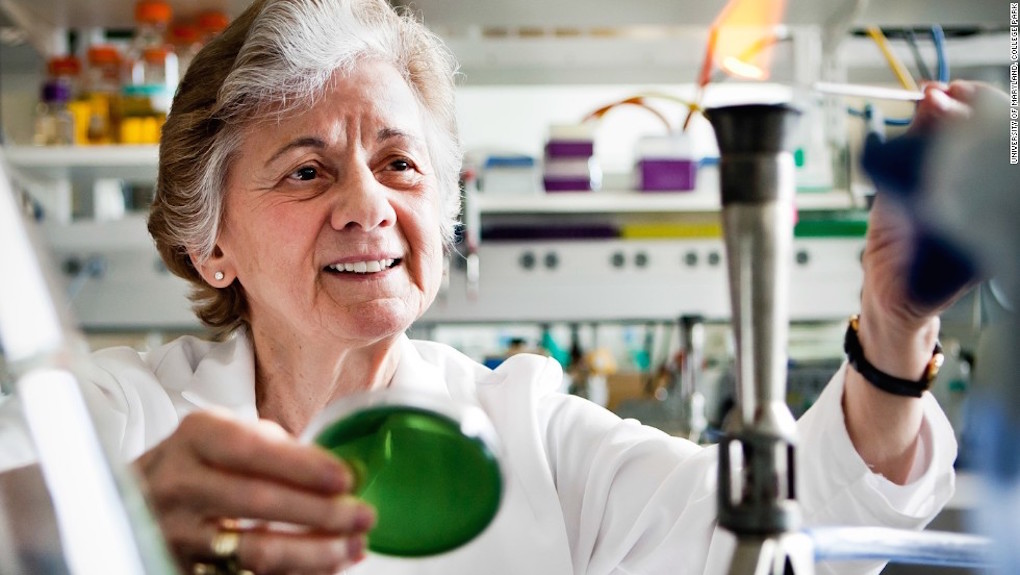Rita Colwell is Distinguished Professor at the University of Maryland, Johns Hopkins University’s Bloomberg School of Public Health in the United States. Her pioneering research on the prevention of waterborne infectious diseases has helped protect the health and lives of millions.

She has made exceptional contributions to control the spread of cholera, a waterborne pathogen that infects 3 to 5 million people and hundreds of thousands deaths each year.
During her participation at SIWI for the World Water Week she presented a video One Water – For Sustainable Development featuring UN Deputy Secretary-General Jan Eliasson and Stockholm Water Prize recipients Sunita Narain, Tony Allan and of course Rita Colwell.
We asked Prof. Rita Colwell some questions about the situation of the water worldwide and the consequences.

What impact does climate change have on the public health issues associated with lack of access to clean water? Are there any immediate actions that be taken to curb these issues?
“Increased severe weather events have the potential to overwhelm sewage treatment operations, with the release of domestic and industrial wastes into rivers, with adverse effects on public health. Recent studies have shown that warmer temperatures of bodies of water that are used as drinking sources or recreation may carry increased microbial populations responding to warmer temperatures, hence more rapid multiplication and proliferation, hence the potentially greater incidence of waterborne diseases. Fortunately, we have developed a DNA based method that allows detection and identification of microbial pathogens so that water can be treated and determined to be safe for human consumption.”
Do you think there are serious risks that some diseases including those related to water (such as cholera or malaria) can spread significantly (even geographically) due to climate changes?
“There is a real potential for this may occur in less developed regions of the world. In developed countries, with relevant preventative technologies in place, such spread of disease due to climate change is less likely since appropriate public health measures can be implemented.”
It appears the UN’s Millennium Goals are in danger of failure. Do you think the policies introduced to meet these goals are sufficient or do we need to find other solutions?
“A major effort should be made to ensure access to safe drinking water and sanitation. Those are the most effective measures that can be taken to protect against waterborne infectious diseases.”
Many researchers have shown that the cause of some diseases (such as autism) may be epigenetic rather than genetic. Do you think that quality of water can increase cases of these diseases? If so, how much?
“There are no substantive data to support this hypothesis at this time. Obviously, chemical contamination of water supplies, lead being one of the most obvious, can have harmful effects on human health, so this must be a consideration in the future. No matter what, however, safe drinking water, free of toxic chemicals, and sanitation, combined, are a basic human need.”
What do you think about water situation such as drought, desertification, and contamination in the US (such as California or Michigan)?
“Drought, desertification, and toxic chemical contamination of water supplies pose very serious threats to human health. Fortunately, methods based on DNA analysis provide a powerful tool to ensure pathogenic microbial agents are effectively removed and the water is safe for human consumption.”
Some writers have discussed the serious risks of war between countries related to water scarcity. What do you think about that?
“Water security is clearly a serious threat in the future, with the anticipated (predicted) global population reaching ten billion. Water resources are already in dispute, with demands increasing for human use, agriculture needs, and industry requirements. With countries becoming increasingly industrialized, farming more technological, and the human populations greater in number, conflicts will arise and negotiation concerning water resource distribution will be necessary to avoid the risk of severe disputes and, perhaps, war.”
We thank Professor Colwell for the time she dedicated to us and for the contribution that her research makes in the fight against serious diseases transmitted by water.












